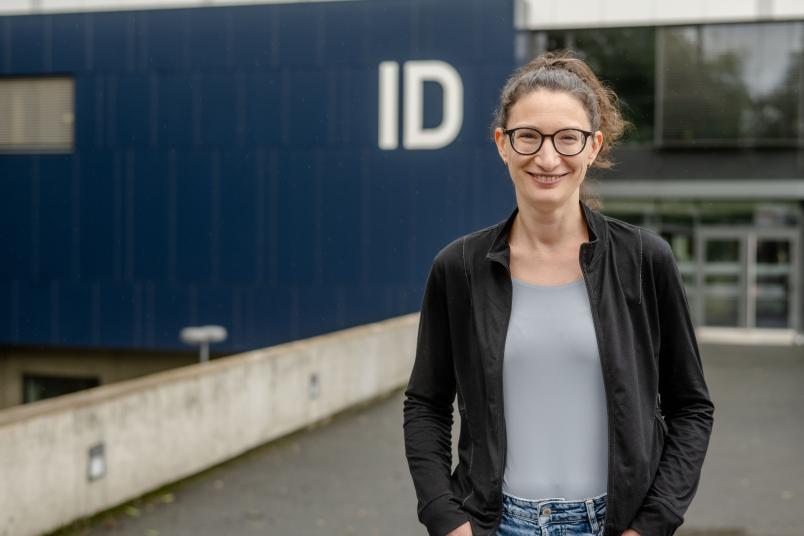
Award Clara Saraceno receives an award for high-speed optics
The International Society for Optics and Photonics honors the Bochum-based researcher for her pioneering contributions to the development of ultrafast high-power lasers and laser-driven terahertz sources.
Prof. Dr. Clara Saraceno receives the SPIE Harold E. Edgerton Award 2024 for high-speed optics, which is presented annually by the International Society for Optics and Photonics (SPIE). It is endowed with 2,000 US dollars. Clara Saraceno holds the Chair of Photonics and Ultrafast Laser Technology at Ruhr University Bochum, Germany, and is a member of the RESOLV Cluster of Excellence.
About the institution
Clara Saraceno is an internationally recognized leader in the development of high-power ultrafast lasers and their applications for terahertz (Thz) science. Her groundbreaking work on high-power ultrafast lasers and nonlinear conversion into the Thz area has had a broad impact on both laser physics and high-frequency systems. At Ruhr University, her group’s research focuses on developing advanced ultrafast laser sources and their applications for terahertz science and technology.
Born in Argentina, Saraceno studied physics with a specialization in optics and photonics at the Institut d’Optique Graduate School in France, then worked for Coherent in the United States. She pursued her PhD in physics at ETH Zürich under the supervision of Professor Ursula Keller, completing that work in 2012. After several years of postdoctoral research at ETH Zürich and the University of Neuchâtel, she began teaching at Ruhr University Bochum in 2016.
About the award
Saraceno has presented several times at SPIE conferences and will be part of the LASE Hot Topics line-up during SPIE Photonics West 2024. Saraceno’s accomplishments have been widely recognized: in 2013, thanks to her doctoral thesis, she was the recipient of the European Physical Society’s Quantum Electronics and Optics Division Thesis Prize; in 2016, she received a Sofja Kovalevskaja Award from the Alexander von Humboldt Foundation; she was the recipient of a European Research Council Starting Grant in 2018; and in 2023, she received the Zhenyi Wang Award for Excellence in Infrared, Millimeter, and Terahertz Waves (IRMMW-Thz) from the Shenggang Liu Education Foundation. In addition to her research-related accomplishments, Saraceno serves as an active mentor for students and postdocs, both within her group and within the wider optics and photonics community, and an active advocate of women in STEM (Science, Technology, Engineering, Mathematics).
